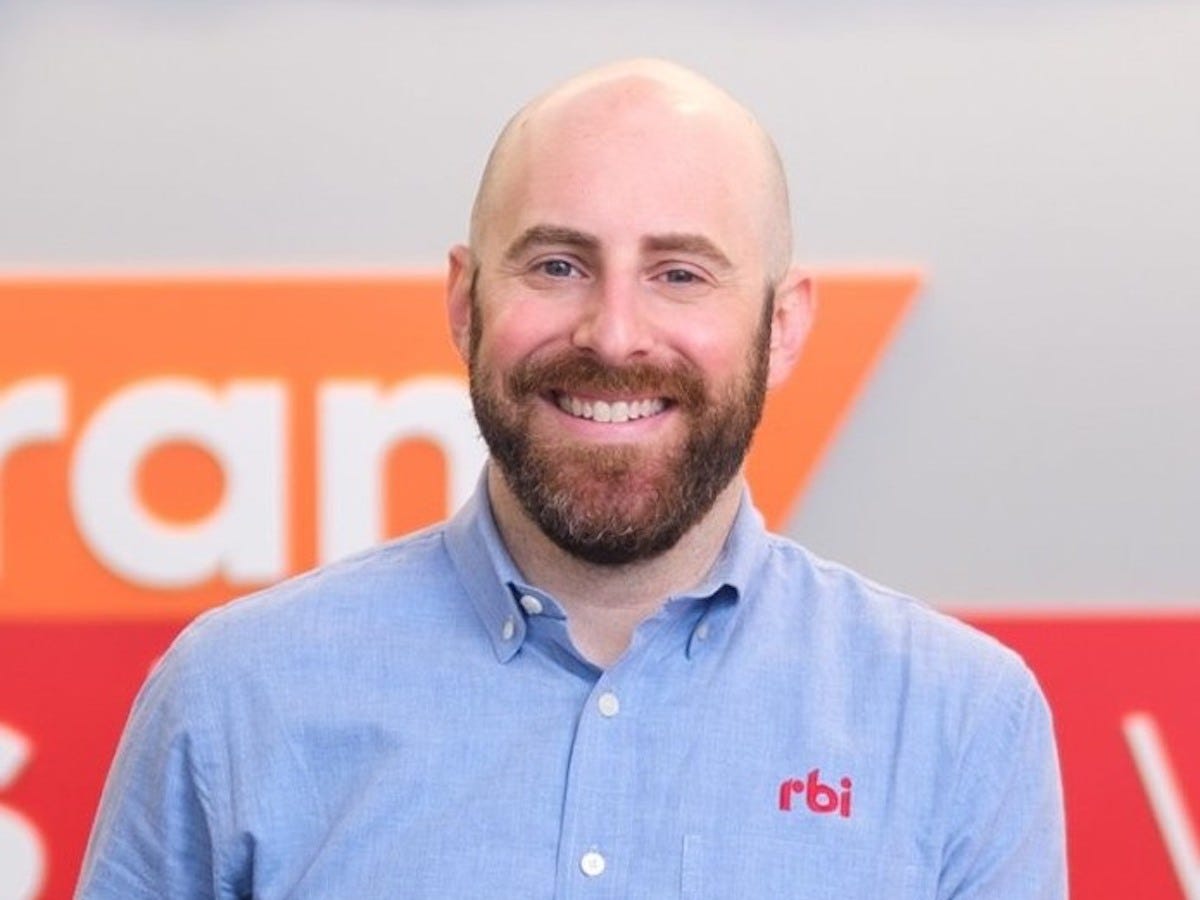
Restaurant Brands International
- Jeffrey Housman is chief people and services officer at Restaurant Brands International.
- Housman has made DEI a priority. All senior executives are now held accountable for DEI goals.
- Food service overall has a diversity problem. People of color are often concentrated in lower ranks.
- This article is part of our "HR Insider" series about HR leaders and their noteworthy strategies.
The value of human resources at Restaurant Brands International has always been "pretty clear" to Jeffrey Housman.
But the pandemic made Housman appreciate even more the "role HR can play in supporting people," he said.
RBI is a 6,300-person company whose brands include Burger King, Tim Hortons, and Popeyes. About 100 restaurants belong to RBI (most restaurants within RBI brands are owned by franchisees). Housman, RBI's chief people and services officer, joined RBI from Burger King Corporation in 2016 and has climbed the ranks since. Housman was named one of Insider's 2021 HR Innovators.
When he took on his current role, in 2019, Housman led RBI in doubling down on its commitment to diversity, equity, and inclusion. Now every senior executive is responsible for cultivating DEI and for making RBI a place where all employees can do their best work.
The foodservice industry overall has been criticized for its lack of diverse representation at the top. According to a 2014 report from the Multicultural Foodservice & Hospitality Alliance, ethnic and racial minorities represent 50% of all hourly employees, compared to 31% of general managers. The report looked at 60 brands, including Popeyes Louisiana Kitchen, but didn't include Restaurant Brands International.
RBI has publicly recognized the challenges. A statement published on RBI's website in July 2020 read, "We acknowledge that we do not have enough diverse employees in our company and in leadership positions," adding that, "By openly acknowledging our shortcomings, we are creating urgency for action."
RBI makes DEI every executive's responsibility
One of the first DEI initiatives Housman's team spearheaded was a change to the interview process. RBI hiring managers now ask job candidates in their first interview what diversity means to them, and how they'd champion diversity if they joined the team.
And at least 50% of all candidates in the final interview round must be "from groups that are demonstrably diverse, including race." This goal is tied to bonuses for the entire leadership and executive team at RBI. Chipotle, McDonald's, and Starbucks have also said they're linking diversity targets to executive compensation.
Housman's team accelerated their efforts to build a diverse, equitable, and inclusive workplace in 2020, a year in which many business leaders vowed to address systemic discrimination in their workplaces.
RBI released a diversity report that highlighted where the organization was falling short. Leadership, for example, was mostly white and male. Thirty percent of senior leaders were women - an improvement from the year prior - and about 43% of senior leaders were non-white. RBI's total workforce included 40% women and 47% non-white employees.
Housman's team led other efforts around inclusion in 2020. Leadership talked about subconscious bias in staff-wide meetings and ramped up training around implicit bias.
Housman is cautiously optimistic that RBI will be able to achieve its DEI goals. "We still have a lot of work to do to get to where we want to be," he said. "But in 2020 we acted on our D&I strategy and made really good progress."


